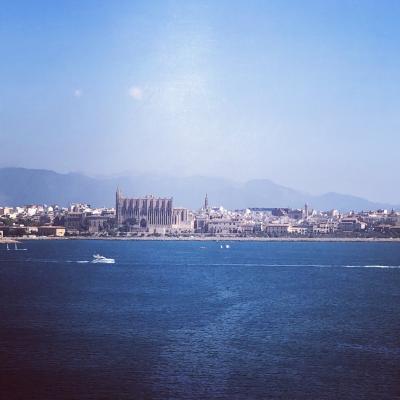How does Mallorca’s Mediterranean climate impact the cultivation of its olive varieties?
Similar Topics
mallorca mediterranean climate
olive cultivation mallorca
olive tree growth
mediterranean olive variety
mallorca olive oil
olive tree resilience
empeltre olive
mallorquina olive
Mallorca’s Mediterranean climate plays a crucial role in shaping the cultivation of its olive varieties, creating ideal conditions for olive trees to flourish. The island experiences hot, dry summers and mild, wetter winters, which provide a balanced environment that is particularly favorable for olive growth. This seasonal rhythm helps olive trees to enter a period of rest during the cooler months, followed by vigorous growth and fruit development as spring and summer arrive. The ample sunlight and warmth throughout these seasons enhance the photosynthesis process, contributing to the production of high-quality olives with rich flavors and optimal oil content.
The moderate rainfall typical of Mallorca’s climate also benefits olive cultivation by reducing the risk of excessive moisture, which can lead to fungal diseases and other issues affecting the health of the trees. Furthermore, the well-draining, often rocky soils found on the island complement the climate by preventing waterlogging, encouraging deep root systems that help trees withstand summer droughts. This natural resilience is vital for the indigenous olive varieties of Mallorca, such as the Empeltre and Mallorquina, which have adapted over centuries to thrive under these specific climatic conditions.
Additionally, the gentle sea breezes characteristic of Mallorca’s coastal environment help regulate temperature extremes and reduce humidity around olive groves. These factors collectively contribute to the consistent quality and taste of Mallorcan olives and olive oils, often noted for their balance of fruitiness and subtle bitterness. The climate thus not only supports the growth and health of the olive trees but also influences the unique sensory profile of Mallorca’s olives, making them a distinctive and cherished product among Mediterranean agricultural goods.
The moderate rainfall typical of Mallorca’s climate also benefits olive cultivation by reducing the risk of excessive moisture, which can lead to fungal diseases and other issues affecting the health of the trees. Furthermore, the well-draining, often rocky soils found on the island complement the climate by preventing waterlogging, encouraging deep root systems that help trees withstand summer droughts. This natural resilience is vital for the indigenous olive varieties of Mallorca, such as the Empeltre and Mallorquina, which have adapted over centuries to thrive under these specific climatic conditions.
Additionally, the gentle sea breezes characteristic of Mallorca’s coastal environment help regulate temperature extremes and reduce humidity around olive groves. These factors collectively contribute to the consistent quality and taste of Mallorcan olives and olive oils, often noted for their balance of fruitiness and subtle bitterness. The climate thus not only supports the growth and health of the olive trees but also influences the unique sensory profile of Mallorca’s olives, making them a distinctive and cherished product among Mediterranean agricultural goods.
🧩 Related Questions
Related Question
Can the relocation of graves in Mallorca affect the way families honor and remember their deceased?
Related Question
How do mammals like red deer and wild boar adapt to the habitats in Mallorca’s woodlands?
Related Question
How do migratory birds impact the biodiversity of Mallorca’s ecosystem?
